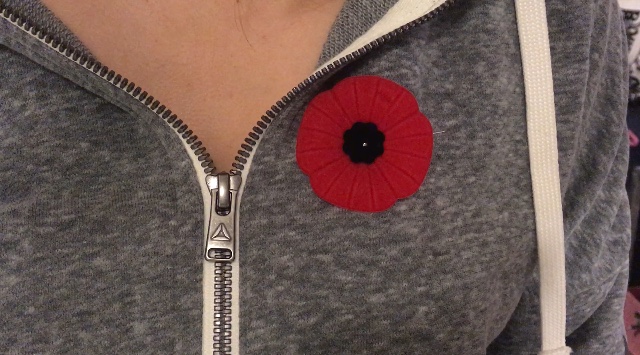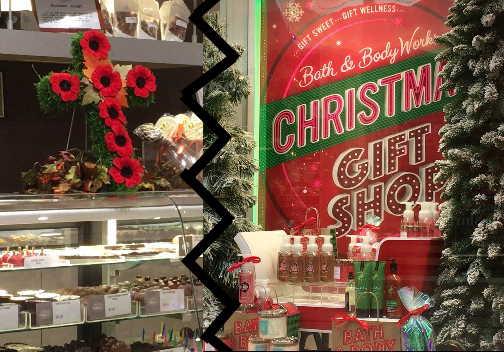For some, as soon as the clock strikes midnight on Nov. 1, “All I Want for Christmas is You” is on repeat, the Christmas tree is up, and Home Alone is the only thing on the television until January.
For others, waiting until at least Nov. 12 is a sign of respect to those who are fighting or have fought for our freedom.
With each November comes the annual debate: is decorating for Christmas before Remembrance Day disrespectful to soldiers and veterans?
Lorraine Holder is a poppy-distributor volunteer who feels Christmas has a time and place, but not until after Remembrance Day.
“We want to remember our war dead or even our heroes at that time, and Christmas is important, but Jesus has his time to celebrate and his time is usually in December,” said Holder, whose parents were both in the military.

Others believe that the freedom veterans fought for gives people the right to celebrate whenever they want.
“We’re still recognizing the people who fought, but they also fought for us to have these liberties and freedoms and so people should be able to do as they wish,” said Laura Wheaton, a St. Thomas University student.
In the retail world, the “Christmas Rush” is known to begin the final week of October. By Nov. 1, the holiday season has arrived and stores can be found decorated in red and green, with holiday products on display.
Although Christmas originated as a religious celebration, it has become the most commercialized holiday on the calendar. Stores waste no time taking advantage of this, some putting out decorations as early as August. Jack-o-lanterns still litter doorsteps while the mall is transformed into the North Pole. But it’s different for Remembrance Day.
Few stores can be found with displays of remembrance like poppies on mannequins and crosses at the checkout.
Some people even feel that decorating in early November is not only disrespectful, but it’s also just too early for Christmas in general.
“In addition to being in very poor taste, by the time Christmas finally rolls around people just want the fucking day [Christmas] over with,” said Rodger Wilkie, a St. Thomas University professor.
“The days prior to Remembrance Day are often given over to thoughtful public discourse on the sacrifices made by members of the military. Being inundated with lights and trinkets and cheap plastic knick-knacks symbolizing the most commercialized holiday in the world undermines and trivializes that sense of contemplation and awareness.”
The question receives mixed answers every year. The argument may never be resolved, but most Canadians agree that no matter when you string up your lights, it’s important to wear a poppy from Nov. 1 to 11 to pay respect to the fallen and fighting.

